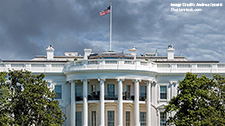The Fragile Global Commons in a World in Transition
Carla Freeman
Abstract:
There are vast spaces of the earth that lie outside the sovereign jurisdiction of any single sovereign state, including much of the world’s oceans, the atmosphere, outer space, and the continent of Antarctica. Accessible to all, these “global commons” serve as vital zones for global connectivity, as well as a critical source for military power and environmental resources. Yet, they lack strong global institutions to govern them. This discussion considers how changes to the international order, driven by the rise of new actors, new technologies, and new tests to human and environmental security, pose risks to the future of global spaces shared by all.
Related Publications
-
Issues and Trends in U.S. Presidential Election 2024
The U.S. presidential election, like national elections in most democracies, is mostly fought and won on domestic issues that have a direct bearing on the day-to-day lives of the American […]
-
IN DEFENSE OF THE LIBERAL INTERNATIONAL ORDER
In recent years, the geopolitical fight for global economic, diplomatic, and institutional control has acutely intensified, accentuating the crisis in the existing post-World War II Liberal International Order (LIO), championed […]
-
Women’s Political Participation and Agency in Indonesia: An Interview with Raneeta Mutiara
In the context of the upcoming Indonesian presidential elections of February 2024, ISDP’s Asia Program intern Nolwenn Gueguen sat down with PhD scholar from the Singapore University of Social Sciences, […]
-
Assessing the Development of Taiwanese Identity
The subject of contemporary Taiwan inevitably evokes controversy concerning its political, national, and cultural identity, especially the fervent dispute regarding its sovereignty and global recognition. Should Taiwan be recognized as […]
-
Awaiting a Pivotal Partnership? The Case of India and South Korea
The shift toward showcasing South Korea as a proactive stakeholder in the global arena—beyond its foreign policy limitations that have thus far centered on Northeast Asian security—has unlocked the potential […]




